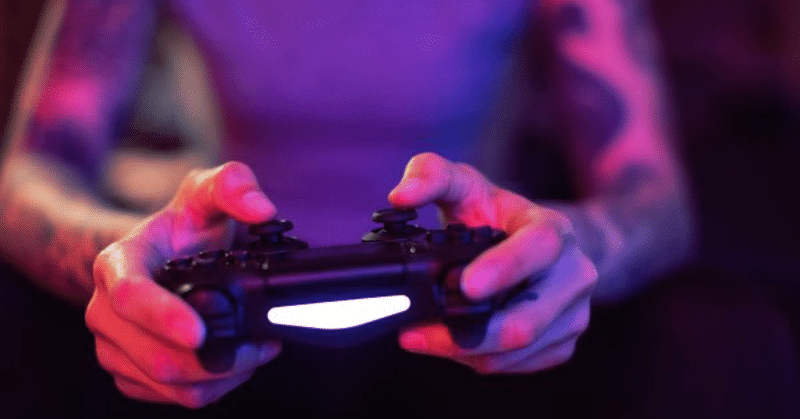
Why You're Regressing to Your Teenage Self During the COVID-19 Outbreak COVID-19の発生中に10代の自己に回帰する理由 https://time.com/5819224/covid-19-act-like-teeangers/
Why You're Regressing to Your Teenage Self During the COVID-19 Outbreak
COVID-19の発生中に10代の自己に回帰する理由
https://time.com/5819224/covid-19-act-like-teeangers/
Getty Images

BY JAMIE DUCHARME
APRIL 15, 2020
Since she graduated high school, Kayla Stetzel, a 26-year-old law student living in Chicago, hadn’t spent any significant time in her father’s house in Indiana. Then the COVID-19 pandemic hit.
Not wanting to spend months alone in her small city apartment, Stetzel decided to move back in with her father—and inadvertently found herself reliving her adolescence. Her electric guitar and The O.C. DVDs came out of storage. She adopted sleep and eating habits even a teenager would find indulgent. And she found herself studying for law-school exams in the exact same place she did her grade-school homework.
“I’m stressed out about school and playing very angry rock and roll music in my basement,” she says. “It’s very surreal.”
Stetzel isn’t the only person having a teenage rebirth. Waves of 20- and 30-somethings turned back the clock in the early weeks of COVID-19 social distancing by retreating to their childhood homes. And even people who have not physically returned to their old surroundings are turning to nostalgic pastimes to fill the hours. Social media is awash in stories of people rediscovering old interests, from craft projects to long-outdated music, and old-school video games like Animal Crossing and the Sims are surging in Google search trends.
“Whenever we’re in a stressful situation, we tend to regress,” says Lori Gottlieb, a California-based psychotherapist. Just think of how you act when you go home for the holidays, she points out.
But while there are potentially destructive forms of regression, like snapping at your loved ones over a Thanksgiving turkey, it can also be a subconscious form of self-soothing. “Going back to a time in our lives when we felt safe and we felt protected is a natural instinct during these times,” Gottlieb says.
FAQ: How Does COVID-19 Spread?
The prevailing means of transmission is via virus-containing microdroplets expelled when someone who is infected either sneezes or coughs.
SharePlay Video
Sarah Solomon, the 31-year-old author of Guac Is Extra But So Am I: The Reluctant Adult’s Handbook, has been turning to an unlikely source for that comfort: the heavy metal music that spoke to her as a teenager, but that she says is now “very against my personal brand” as a Brooks Brothers-wearing adult in New York City. COVID-19 has made Korn and Nine Inch Nails suddenly feel appropriate again, Solomon says.
RELATED STORIES
Tribute Marks 25th Anniversary of Okla. Bombing
Aid Proposal Offers Billions for Hospitals, Testing
“We couldn’t go out when we were younger, so I feel like I’m regressing to that point—just raging against being isolated and not allowed to go out,” she says.
Martin Bell, a 33-year-old living with his wife and dog in Georgia, is also turning to old music during COVID-19. He says he’s especially drawn to bands like Bloc Party and the Strokes that he had on heavy rotation in the early 2000s, when he was searching for comfort during another “crisis point,” when “the whole world was turning upside down”: the Sept. 11 attacks.
“The sound of the music can take you back to these feelings that you really didn’t even know were still there,” he says.
Many adults who can telecommute (and do not have responsibilities like child or elder care) are also turning to old pastimes to fill their unprecedented number of unstructured hours at home. That’s the case for Madeline Bilis, a 26-year-old journalist living in New York City.
On a recent weekend, Bilis decided to download the Sims, a game she hadn’t played in more than a decade. “I played for about seven hours without realizing it,” she says. “I blew through lunch somehow, absent-mindedly funneling pretzels into my mouth.” She says the game reminds her of living in her parents’ home as a kid, “the last period when I had time to waste away hours on end.”
Dr. Frances Jensen, chair of the neurology department at the University of Pennsylvania’s Perelman School of Medicine and author of The Teenage Brain, says most of the behaviors we associate with teenagers—like video-game marathons and junk food feasts—relate to impulsivity and a desire for immediate gratification. Adults are displaying these same behaviors during the COVID-19 pandemic, but for different neurological reasons, Jensen says.
Teenagers owe their impulsive nature to their still-developing brains. The frontal lobe, the part of the brain that controls executive functioning, doesn’t fully mature until the mid-20s, Jensen says, making teens more likely to give in to their whims. Adults who are mirroring these behaviors during the pandemic don’t have the same excuse, Jensen says—but stress can do funny things even to developed frontal lobes. “Stress can increase impulsivity, and people are under a lot of stress” right now, Jensen says. “It’s a balance between the executive function parts of your brain and the ‘I want it, I want it, I want it!’ parts of your brain,” which are mainly housed in the limbic system. When you’re under stress, and “your barriers are down,” the limbic system may win out more than normal, giving rise to stereotypically teenage behaviors, she says.
COVID-19の発生中に10代の自己に回帰する理由
ゲッティイメージズ
ジェイミー・デュシャルム
2020年4月15日
彼女は高校を卒業して以来、シカゴに住む26歳の法律学生であるKayla Stetzelは、インディアナ州の父親の家で有意義な時間を過ごしていませんでした。 その後、COVID-19の大流行。
小さな街のアパートで一人で数か月を過ごしたくなかったステッツェルは、父親と一緒に引っ越すことを決心し、うっかり彼女は思春期を取り戻しました。 彼女のエレキギターとThe O.C. DVDがストレージから出てきました。 彼女は睡眠と食習慣を採用し、10代の若者でさえも気楽に感じるでしょう。 そして、彼女は自分が小学校の宿題をしたのとまったく同じ場所でロースクール試験のために勉強していることに気づきました。
「私は学校についてストレスを感じており、地下室で非常に怒っているロックンロール音楽を演奏しています」と彼女は言います。 「それは非常に現実的です。」
10代の新生児は、ステッツェルだけではありません。 20代と30代の波は、COVID-19の社会的距離が離れた初期の週に、子供時代の家に後退することによって時計を逆転させました。 そして、物理的に古い環境に戻っていない人々でさえ、時間を埋めるために懐かしい娯楽に目を向けています。 ソーシャルメディアは、クラフトプロジェクトから古くなった音楽まで、古い興味を再発見した人々の話で溢れています。アニマルクロッシングやシムズのような古い学校のビデオゲームは、Googleの検索トレンドで急増しています。
「私たちがストレスの多い状況にいるときはいつでも、私たちは後退する傾向があります」とカリフォルニアに拠点を置く心理療法士のロリ・ゴットリーブは言います。 休日に家に帰るときの行動を考えてみてください、と彼女は指摘します。
しかし、感謝の七面鳥の上であなたの愛する人にスナップするような、潜在的に破壊的な形の退行がありますが、それはまた潜在的な自己鎮静の形になることもあります。 「私たちが安全だと感じ、保護されていると感じたときの私たちの生活の時間に戻ることは、これらの時間の間の自然な本能です」とゴットリーブは言います。
FAQ:COVID-19はどのように拡散しますか?
感染の主な手段は、感染した人がくしゃみまたは咳をしたときに排出されるウイルスを含む微小液滴によるものです。
SharePlayビデオ
31歳のGuacの作者であるサラソロモンはもう一人ですが、私もそうです:消極的大人向けハンドブックは、その快適さについてはありそうもない情報源になっています。ティーンエイジャーとして彼女に語ったヘビーメタル音楽ですが、彼女は ニューヨークのブルックスブラザーズを着た大人として、今では「私の個人的なブランドに非常に反対しています」と言っています。 ソロモン氏によると、COVID-19により、コーンとナインインチのネイルが突然ふさわしくなりました。
関連ストーリー
トリビュートマークオクラ25周年記念
援助の提案は病院、テストに数十億を提供します
「私たちが若い頃は外出できなかったので、私はその時点まで後退しているように感じます。孤立することへの怒りと外出を許されないだけです」と彼女は言います。
ジョージア州で妻と犬と暮らしている33歳のマーティンベルも、COVID-19の期間中に古い音楽に目を向けています。 彼は、2000年代初頭に「全世界がひっくり返っていた」別の「危機的状況」で快適さを模索していた2000年代初めに激しいローテーションを行ったBloc PartyやStrokesなどのバンドに特に惹かれていると言います。 。11攻撃。
「音楽の音は、あなたがまだそこにいることさえ知らなかったこれらの感情にあなたを連れ戻すことができます」と彼は言います。
在宅勤務ができる(そして育児や高齢者の介護のような責任がない)多くの大人も、前例のない数の非構造化時間を自宅で満たすために古い娯楽に目を向けています。 ニューヨークに住んでいる26歳のジャーナリスト、Madeline Bilisがそうです。
最近の週末、BilisはSimsをダウンロードすることを決めました。これは、彼女が10年以上プレイしていなかったゲームです。 「気づかずに約7時間プレイしました」と彼女は言います。 「どういうわけか私は昼食をプレッシャーで吹き抜け、ぼんやりとプレッツェルを口に注ぎました。」 彼女は、ゲームが彼女の両親の家に子供として住んでいることを思い出させると言います、「私が最後に時間を無駄にする時間があった最後の期間」。
ペンシルベニア大学のペレルマン医学部の神経学部長であり、The Teenage Brainの著者であるフランシスジェンセン博士は、ビデオゲームマラソンやジャンクフードのごちそうなど、ティーンエイジャーに関連するほとんどの行動は衝動性と すぐに満足したいという願望。 成人はCOVID-19のパンデミック中にこれらと同じ行動を示していますが、神経学的な理由により、ジェンセンは言います。
10代の若者の衝動的な性質は、未だ発達中の脳に負っています。 ジェンセンは、20代半ばまで脳の一部である前頭葉は実行機能を制御するまで完全に成熟しないため、10代が気まぐれに屈する可能性が高くなると述べています。 ジェンセンは、パンデミックの最中にこれらの行動を反映している大人には同じ言い訳はありませんが、発達した前頭葉に対してもストレスが面白いことをする可能性があると言います。 「ストレスは衝動性を高める可能性があり、人々は現在多くのストレス下にあります」とジェンセンは言います。 「それは、脳の実行機能の部分と、脳の一部である「私はそれが欲しい、私はそれが欲しい、私はそれが欲しい!」とのバランスです。これらは主に辺縁系に収容されています。 ストレスがかかり、「障壁が下がっている」と、大脳辺縁系が通常よりも勝ち、典型的な10代の行動を引き起こす可能性があると彼女は言います。
この記事が気に入ったらサポートをしてみませんか?
